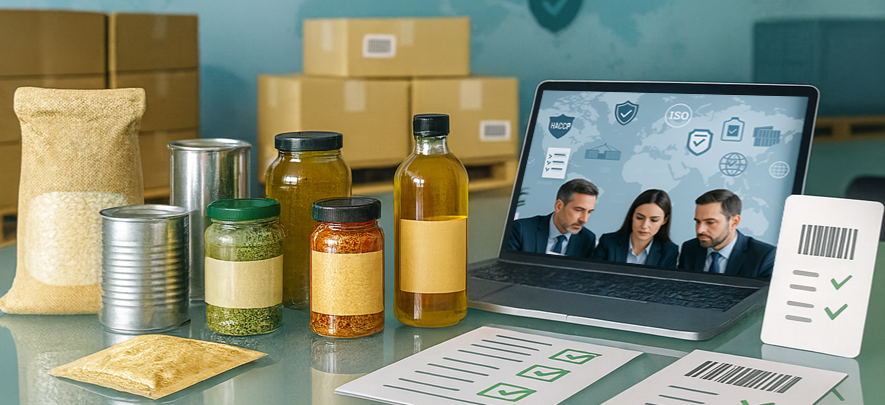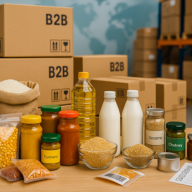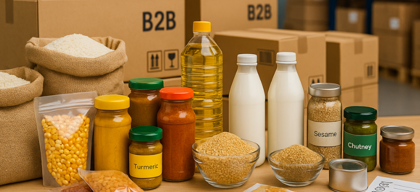Understanding International Food Safety Standards

Business Development
23 hours ago — 4 min read
When it comes to exporting food and beverage products, one of the most important factors that can make or break a business is food safety compliance. Buyers across the world want assurance that the products they import are safe, hygienic, and meet international regulations. For Indian exporters, understanding these standards is not just about avoiding delays or rejections — it’s about building long-term trust with global buyers.
Why Food Safety Standards Matter
Food is directly linked to health and wellbeing, which means international regulations are strict. If products fail to meet safety norms, they can be rejected at ports, recalled from shelves, or lead to legal and financial penalties. More importantly, a lack of compliance can damage your reputation with buyers and end-consumers.
Common International Food Safety Standards & Regulations
Here are some key standards every exporter should know:
-
Codex Alimentarius: A collection of globally recognized food standards developed by the FAO and WHO. It covers labeling, hygiene, additives, and contaminants.
-
HACCP (Hazard Analysis and Critical Control Points): An internationally accepted system to identify, monitor, and control potential hazards in food production.
-
ISO 22000: An international standard that integrates food safety management with quality processes.
-
Country-specific regulations: For example, FDA in the US or EFSA in the EU. Exporters must obtain Halal certification for the Middle East and Kosher certification for Jewish markets. Exporters must always check the requirements of the importing country.
-
Organic Products: Products must comply with the organic certification standards of the importing country.
Certifications & Approvals for Indian Food Exporters
-
FSSAI (Food Safety and Standards Authority of India) License: Mandatory for businesses in India, ensuring products meet domestic and export-ready safety standards.
-
APEDA (Agricultural and Processed Food Products Export Development Authority) Registration: Required for exports of fruits, vegetables, cereals, and value-added products.
-
Phytosanitary Certificates: Vital for plant-based products to confirm they are free from pests and diseases
-
Health Certificates: Essential for meat, dairy, and seafood exports.
Steps for Exporters to Ensure Compliance
-
Understand target market requirements: Each country may have different standards and certifications. Research is key.
-
Maintain strong documentation: Keep records of sourcing, processing, packaging, and shipping.
-
Invest in quality control: Regular audits, testing, and certifications help in building credibility.
-
Work with certified suppliers: Ensuring safety begins at the sourcing stage.
-
Stay updated: Food safety laws evolve frequently. Staying informed helps avoid surprises.
Building Trust Through Compliance
When international buyers see that your products comply with recognized standards, they feel confident in working with you. Beyond legal requirements, compliance shows that you value quality and customer safety — both of which are vital for long-term growth in global markets.
Conclusion
International food safety standards may seem complex at first, but they are essential for success in food exports. By understanding and implementing them, Indian exporters can position themselves as reliable partners in global trade.
Looking to connect with credible Indian food and beverage suppliers who follow international standards? Explore GlobalLinker’s Food & Beverage category to find the right partners for your business.
Image credit: Generated by OpenAI’s DALL·E
Disclaimer: The views and opinions expressed in this article are those of the author and do not necessarily reflect the views, official policy or position of GlobalLinker.
Posted by
Supriya MathurMy endeavour is to help business owners digitise, network and grow easily. Towards this I help organise webinars, curate articles and answer queries via our help centre.
View Supriya 's profile
Most read this week












Comments
Please login or Register to join the discussion